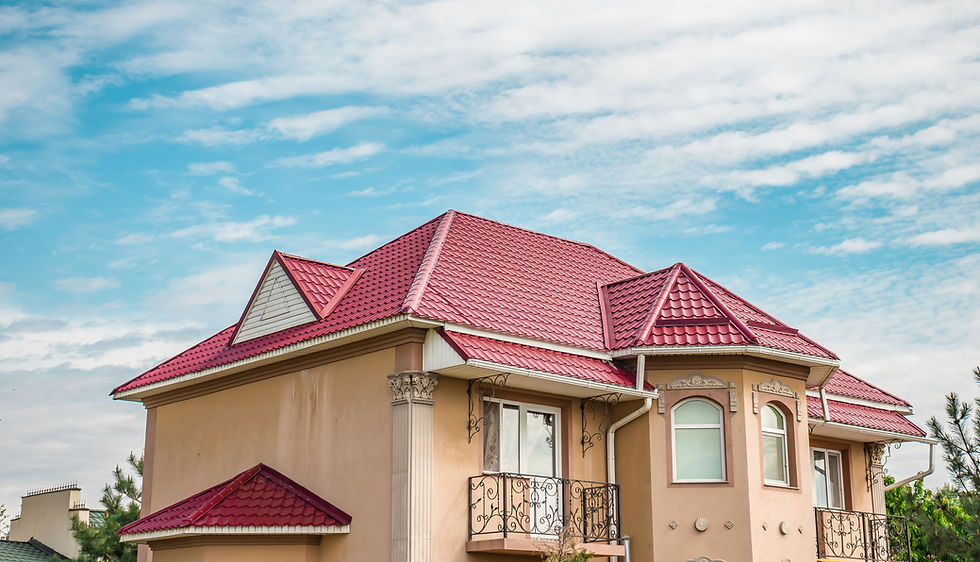Florida Building Code vs. HVHZ: what homeowners in Broward & Miami-Dade must know before getting roof quotes
- sirgeorge3
- Sep 15, 2025
- 3 min read

If you live in South Florida, every roof job has to follow the Florida Building Code (FBC). The FBC is the state’s rulebook for safe construction and it’s updated on a regular cycle (the current 8th Edition took effect December 31, 2023).
The short version
FBC = statewide baseline.
HVHZ = the extra-tough chapter of the FBC that applies only in Miami-Dade and Broward. If your home is in these counties, your roofing work must meet HVHZ provisions in addition to the general FBC rules.
What exactly is the HVHZ?
“High-Velocity Hurricane Zone” (HVHZ) is an enhanced set of code requirements created after South Florida’s past storms. By definition in the FBC, the HVHZ consists of Broward and Miami-Dade counties—nowhere else. That’s why a roof in West Palm Beach is designed under the FBC, while the same roof in Hollywood or Kendall must meet FBC + HVHZ.
Why does HVHZ matter for your roof?
Because it changes what can be installed, how it’s fastened, what paperwork is required, and how it’s inspected. Here are the biggies:
Stricter product approvals
Roofing components in HVHZ (shingles, tile systems, underlayments, fasteners, adhesives, skylights, vents, etc.) must carry either a Miami-Dade “NOA” (Notice of Acceptance) or a Florida Product Approval that explicitly says “Approved for use in HVHZ.” If an item lacks this endorsement, it can’t be used on your HVHZ job—even if it’s allowed elsewhere in Florida.
Hurricane test protocols (TAS 201/202/203)
Many building-envelope products used in HVHZ are evaluated with Miami-Dade’s TAS tests (impact, air/water, and cyclic pressure). Passing those tests is your proof the system is engineered for our region’s wind-borne debris and pressures.
Permitting & forms are different
Local authorities use HVHZ-specific roofing applications and affidavits, and contractors must explain Section 1524 items (like potential deck renailing, roof-to-wall retrofits in certain projects, drainage details, etc.) as part of the permit process.
Design wind speeds & fastening patterns
HVHZ uses higher design wind speeds than many non-HVHZ areas, which drives tighter fastening schedules, specific underlayment methods, and edge-zone detailing. These details are mandatory—not “nice to haves.”
Getting quotes? How to compare apples to apples
If you’re in Broward or Miami-Dade, use this checklist when you request estimates:
Ask for the approval numbers in writing. Every proposed roof system (shingle/tile/metal, underlayment, fasteners, adhesives, vents, skylights) should list either a Miami-Dade NOA or a Florida Product Approval marked for HVHZ. Keep those PDFs with your warranty and permit folder.
Confirm the permit will be filed as HVHZ. The contractor should use the correct HVHZ roofing forms and reference the exact system/attachment method shown in the approval documents.
Look for edge-zone and attachment details. Quotes should call out eave/rake metal, nail/fastener spacing, foam/bead patterns (for tile), and secondary water barrier requirements consistent with the approvals.
Verify inspections and close-out. Final inspection should match the approved system. Keep signed affidavits and the NOA/FPA sheets for insurance and future resale. (cohb.org)
What if I’m in Palm Beach County?
Palm Beach is not in the HVHZ, but it still follows the statewide FBC (current 8th Edition). Many homeowners there choose Miami-Dade NOA–approved products anyway for added peace of mind, even when not strictly required. If you own property in both areas, expect Broward/Miami-Dade quotes to include HVHZ-specific materials and steps—which is why the price can differ.
Bottom line
Every Florida roof follows the FBC.
Broward & Miami-Dade roofs must also comply with the HVHZ chapter of the FBC.
That extra layer affects materials, testing, permitting, and inspections—and it’s crucial when comparing quotes. Choose a licensed contractor who knows the HVHZ paperwork and can prove every component is approved for use in HVHZ.
Ready for an HVHZ-compliant roof quote? Tap the button to call The Roofing Knight. We’ll specify the exact NOA/FPA approvals in your estimate and handle permitting the right way from day one.
Florida Building Code vs HVHZ.


Comments